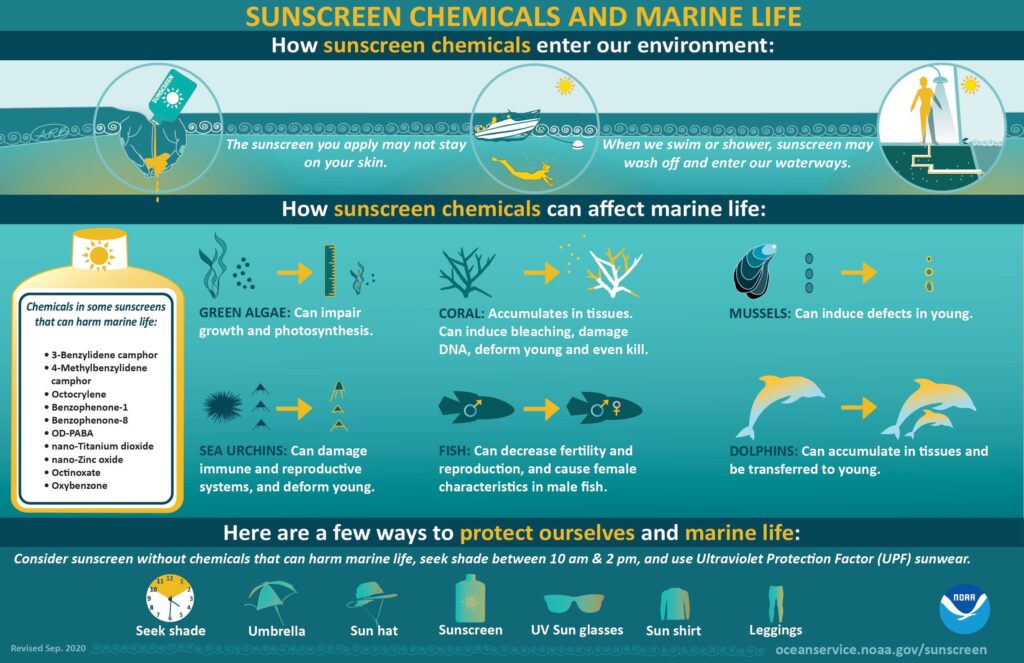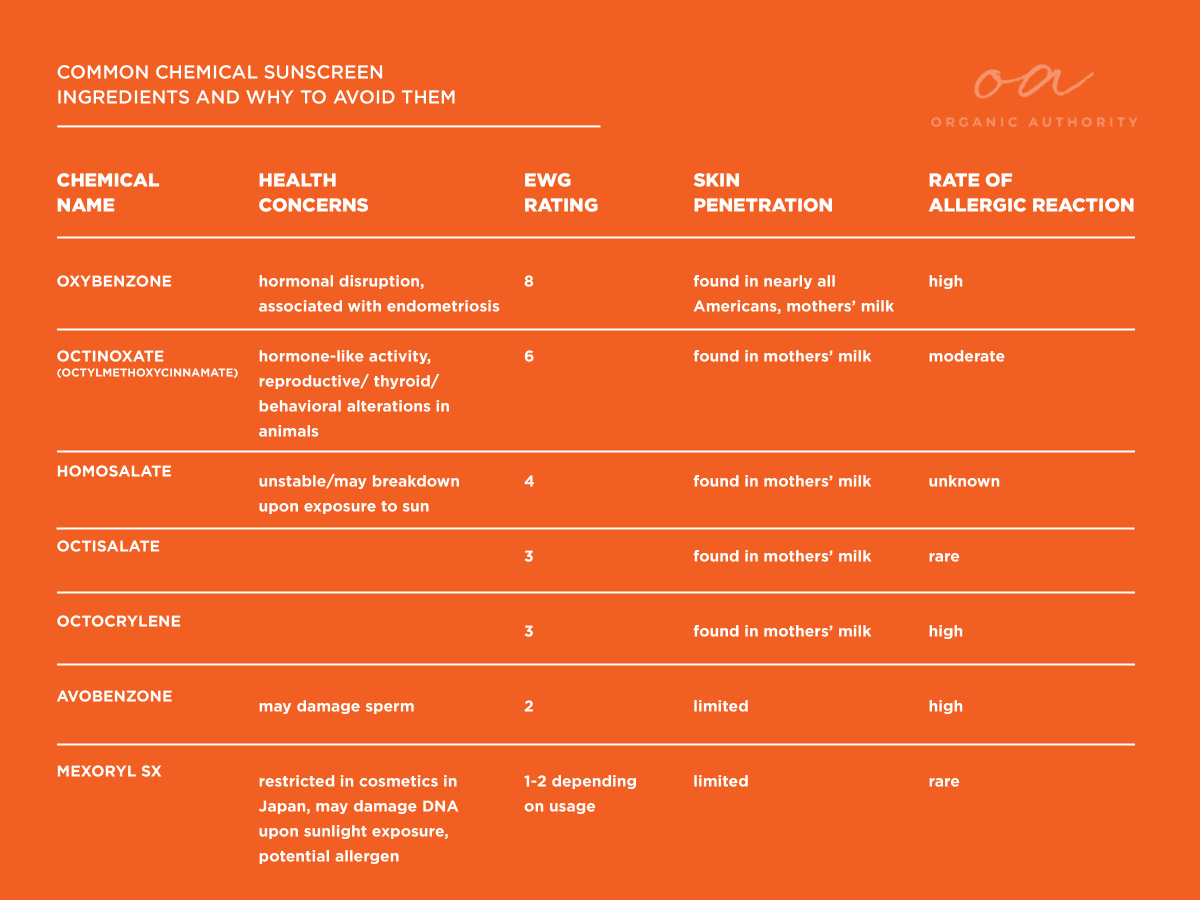4,000 to 6,000 tons of sunscreen land on coral reefs every year.
5.4 million skin cancers are diagnosed every year, and this is increasing.
Two facts that are related – ever increasing cases of skin cancer and ever decreasing health of the oceans – revolve around sunscreen. Can we use sunscreen to prevent cancer without harming the ocean? YES.
Chemical romance
There are a few types of sunscreens. The most common are chemical and physical sunscreens. Chemical sunscreens are wider known and used. They’re the ones smeared on you as a baby. They contain chemicals that the Food & Drug Administration (FDA) is concerned about – avobenzone, oxybenzone, octocrylene, homosalate, octisalate, and octinoxate – because they are absorbed through skin into the bloodstream. These sunscreens seem to disappear shortly after application.
These chemicals (like so many others in our daily lives) haven’t been studied for toxicity in our bodies. The FDA isn’t saying there is something wrong with them. It’s saying they need to be examined more closely. They have however been looked at for their impact on the waters and oceans of our Earth.
Reef safe or reef friendly?
Physical sunscreens lay on top of the skin, and don’t seem to be absorbed into the bloodstream. They work simply by blocking the sun from your skin. These sunscreens contain either zinc oxide or titanium dioxide. These sunscreens often leave a lightly visible coating. Zinc oxide and titanium oxide have been decreed as safe by the FDA.
Other governmental agencies are more concerned about sunscreens. The National Oceanic & Atmospheric Administration (NOAA) released this infographic on the many ways sunscreens can harm sea life.

There aren’t official definitions for reef safe or reef friendly. The presence of zinc oxide or titanium dioxide and absence of toxic chemicals is the easiest determination. (Though there are some mineral sunscreens without zinc or titanium dioxide, none that I have tried have worked at all.)
Since reef safe and reef friendly aren’t regulated by anyone, their presence on a label guarantees nothing. According to the Haereticus Environmental Laboratory, an environmental research organization, there are other chemicals found in sunscreens that harm sea life. (There has been a study showing that the nanoparticles in zinc oxide can harm coral reefs. It hasn’t been replicated yet.)
What to slather and what to avoid
Here’s a list of okay sunscreen ingredients: zinc oxide or titanium oxide.
The must avoid list is longer. Some of the ingredients are known to be bad for humans. Others harm sea life. In general, look for non-nanoparticle sunscreen. Even with zinc oxide you want the non-nano.
This table from the Organic Authority website lays it out.

Here are a couple of links if you want to be horrified:
*turns into a carcinogen
**bad for pregnant mothers
Florida man doesn’t care
In 2021 Florida Governor Ron DeSantis banned any municipality from banning any sunscreens. This is despite the evidence that chemical and some mineral sunscreens hurt coral reefs. Coral reefs are fundamental to the oceans’ health. Supporters of the ban banning sunscreen called coral reef research ‘junk science‘.
According to the Florida Phoenix,
The bill, SB 172, was sponsored by (now former) Senate Appropriations Chairman Rob Bradley, a Republican from a rural, inland district in north Florida…During the legislative session, Bradley had argued that using sunscreens, regardless what kind, to protect tourists and residents from skin cancer trumps protecting corals from sunscreen.”
There doesn’t seem to be research indicating that people will choose to not use sunscreen rather than use reef safe sunscreen.
Just a little shopping tip – many off-price department stores like TJ Maxx, Marshalls, Ross, etc, sell reef safe sunscreen at lower prices.

